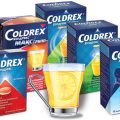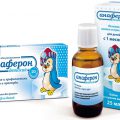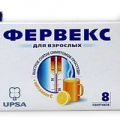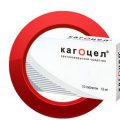viruses, causing cold symptoms - flu, SARS and the new Covid-19, are quite common on the planet and have a lot in common. All listed viruses are prone to mutations and easily adapt to vaccines, do not form long-term immunity in those who have been ill and react poorly to drugs. Which means, every season the “cold” appears again, causing unpleasant symptoms in healthy people and posing a serious threat to the life of people with chronic diseases and poor health.

Influenza and SARS treatment methods1
How ARVI and influenza develop?
The course of colds, caused by influenza viruses, ORVI and Covid-19, can be divided into several stages, each of which requires a different approach to therapy. Average duration of a cold, caused by one of the viruses, is 6-14 days.
In the first three days, the primary symptoms of the disease develop, which are localized in the focus of infection: cold, difficulty swallowing, cough. Influenza and Covid-19 viruses are characterized by rapid development of systemic reactions, associated with endogenous intoxication: fever, myalgia, photophobia, dizziness and headache.
In the period from the third to the sixth day, the acute phase of the disease occurs., when there is an increased temperature, and the symptoms are especially painful. Influenza and ARVI infections familiar to the body are characterized by the launch of specific immune reactions, completely eliminating the viral agent by the end of the sixth day. For new viruses, which includes Covid-19, possible excessive development of local inflammation, which causes massive death of surrounding tissues and rapid systemic spread of the viral agent.
The period from the sixth to the fourteenth day is the time of development of complications or recovery of the body. The second scenario is typical for a mild course of infection and well-coordinated work of immunity. The first is often observed in people with poor health., chronic diseases and various cases of immunodeficiency. Covid-19, like a virus new to humans, significantly more often leads to the development of complications in the listed groups.

Flu therapy plan, SARS and other colds
Any flu or SARS infection, as well as all diseases with similar symptoms in therapy are considered, how potentially heavy, which largely determines the treatment regimen. The main task of the doctor is to start therapy as early as possible., to block the spread of the virus before the infection begins to generalize. In this way, it is the actions in the first three days that largely determine the severity of the course of the disease.
Priority areas of therapy in this period:
1. Prescribing etiotropic agents with proven antiviral efficacy against circulating strains (azithromycin, ceftriaxone, oseltamivir (nomides), apiksaban (elixir)). In the treatment of new viruses and strains, doctors can rely on previous treatment experience, prescribing drugs for Covid-19, have shown the maximum effectiveness against colds viruses of other groups. To date, the drug with the highest evidence base is oseltamivir (Nomides).
2. Prescribing anti-inflammatory and antihistamines, blocking the excessive development of a local inflammatory process.
3. Detoxification of the patient's body, prescribing antioxidants and maintenance drugs, including vitamin complexes. So, in the treatment of coronavirus infection, vitamin D3 acts as such a drug.
4. Tracking the development of concomitant bacterial infections and the timely appointment of antibacterial and antifungal therapy.
An integrated approach to treatment at the early stages of disease development is aimed at arresting the inflammatory process and destroying viral agents, which can significantly reduce the risks of complications and significantly reduce the number of deaths.
Antiviral and, if necessary, antibiotic therapy is necessary throughout the entire period of treatment, the doctor selects additional drugs in accordance with the symptoms, choosing local remedies for vasoconstriction, gargling, etc..
Children tolerate colds easier than adults due to actively developing immunity, and the percentage of complications for small patients is lower, however, the only difference in the treatment of young patients is the dosage of drugs. Such a tough approach is related to, that rare complications are harder for children than adults, and prevention is much more important for them.
Government support measures for ARVI treatment, flu and Covid-19
Beyond the traditional quarantine, which is announced annually during the peak of the incidence of influenza and SARS in schools, preschool institutions and a number of enterprises, the government introduces restrictive and supportive measures, preserving the availability of treatment for the population.
So, TASS informs, what:
“WITH 2021 Rosstat will begin monthly monitoring of prices for azithromycin, ceftriaxone, oseltamivir (nomides), apiksaban (elixir), vitamin D3. All these medicines are used in the treatment of patients with coronavirus infection.“.2
Monitoring includes 43 drug, 19 of which belong to the VNLP group and are necessary for just that population group, which is most susceptible to complications from influenza, SARS and coronavirus.
Also among the support measures there are a number of recommendations for each resident of the country., including the widespread dissemination of information on good hygiene during an epidemic of influenza-like illness. Mask mode, proven effective, also a supportive measure - in the autumn-winter period 2020 there are practically no patients diagnosed with influenza and the number of SARS cases has decreased significantly. The growth in the number of patients with COVID-19 is also slowing down thanks to these measures, and maintaining the availability of drugs allows minimizing the number of complications even in patients from risk groups.











